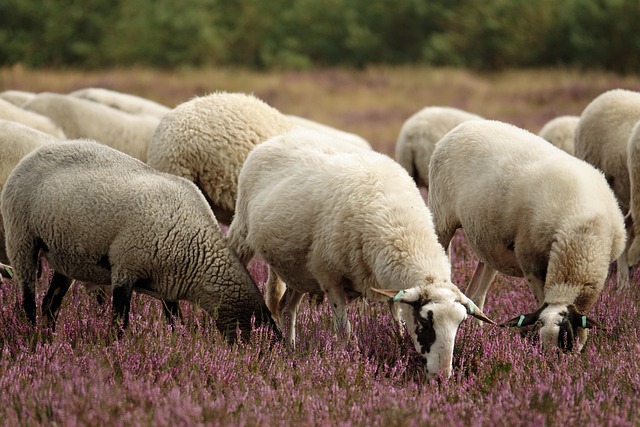Unraveling the Secrets of Sheep Intelligence
Sheep, often dismissed as simple-minded followers, are revealing themselves to be far more intelligent than previously thought. Recent research has uncovered fascinating aspects of ovine cognition, challenging long-held stereotypes and shedding light on the complex inner workings of these woolly wonders. From problem-solving abilities to emotional intelligence, sheep are proving to be remarkably clever creatures with a range of cognitive skills that rival those of some primates.

The Evolution of Sheep Cognition
The story of sheep intelligence begins millions of years ago, as these animals evolved to thrive in diverse environments. Contrary to popular belief, the ancestors of modern sheep were not docile grass-eaters but agile mountain dwellers. This evolutionary history required the development of cognitive abilities to navigate treacherous terrain, avoid predators, and find food in challenging landscapes.
Over time, as sheep became domesticated, their cognitive abilities adapted to new challenges. The need to remember complex social hierarchies within flocks, recognize individual faces, and navigate human-created environments all contributed to the refinement of sheep intelligence. Today, we are only beginning to appreciate the depth of their cognitive capabilities.
Facial Recognition: A Sheepish Superpower
One of the most surprising discoveries in sheep cognition research is their exceptional ability to recognize faces. Studies have shown that sheep can remember and distinguish between up to 50 individual faces, both of other sheep and humans. This ability persists for up to two years, demonstrating a remarkable long-term memory.
What’s more, sheep can recognize emotions in facial expressions, responding differently to happy, angry, or neutral faces. This skill extends beyond their own species, as they can identify human emotions as well. Such sophisticated facial recognition abilities were previously thought to be limited to primates and a few other mammalian species.
Problem-Solving Prowess
Sheep have demonstrated impressive problem-solving skills in various experimental settings. In one study, researchers presented sheep with a challenge involving a food reward placed behind a semi-transparent barrier. The sheep quickly learned to navigate around the barrier to reach the food, showing an understanding of object permanence and spatial relationships.
Another experiment tested sheep’s ability to learn and remember a complex maze. Not only did the sheep successfully navigate the maze, but they also remembered the correct path for up to six weeks after their initial training. This level of spatial memory and problem-solving ability challenges the notion of sheep as simple-minded creatures.
Emotional Intelligence and Social Cognition
Perhaps one of the most intriguing aspects of sheep intelligence is their emotional depth and social cognition. Sheep form strong bonds within their flocks and can recognize individual faces and voices of their companions. They show signs of distress when separated from their flock mates and exhibit clear preferences for certain individuals.
Research has also revealed that sheep can experience a range of emotions, including fear, anger, boredom, and even optimism or pessimism. In one study, sheep demonstrated the ability to self-medicate when feeling anxious, choosing to eat plants with calming properties. This suggests a level of emotional awareness and self-regulation previously unrecognized in these animals.
Implications for Animal Welfare and Ethics
The growing body of evidence supporting sheep intelligence has significant implications for animal welfare and ethics. As we come to understand the cognitive and emotional capabilities of these animals, it becomes increasingly important to ensure their well-being in agricultural settings.
Many farms are now implementing practices that take into account the intelligence and social needs of sheep. These include providing more stimulating environments, allowing for natural social behaviors, and minimizing stress during handling and transportation. The estimated cost of implementing such welfare-focused practices varies but can range from $5,000 to $20,000 per farm, depending on size and existing infrastructure.
Future Directions in Sheep Cognition Research
As our understanding of sheep intelligence grows, so too does the potential for further research. Scientists are exploring new areas of ovine cognition, including their potential for numerical understanding, their capacity for learning from human demonstrations, and their ability to use tools.
One exciting avenue of research involves the use of advanced neuroimaging techniques to study sheep brain activity. These studies could provide insights into the neural basis of sheep cognition and potentially shed light on human neurological conditions, as sheep brains share some similarities with human brains.
The field of sheep cognition research is rapidly evolving, challenging our preconceptions and opening up new possibilities for understanding animal intelligence. As we continue to unravel the secrets of sheep minds, we may find that these woolly wonders have much more to teach us about cognition, emotion, and the complexity of animal minds than we ever imagined.






